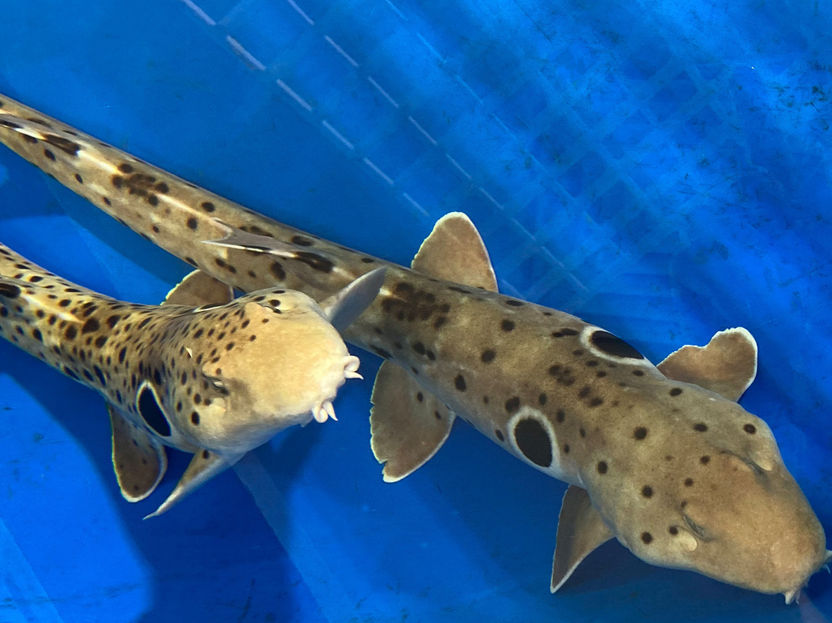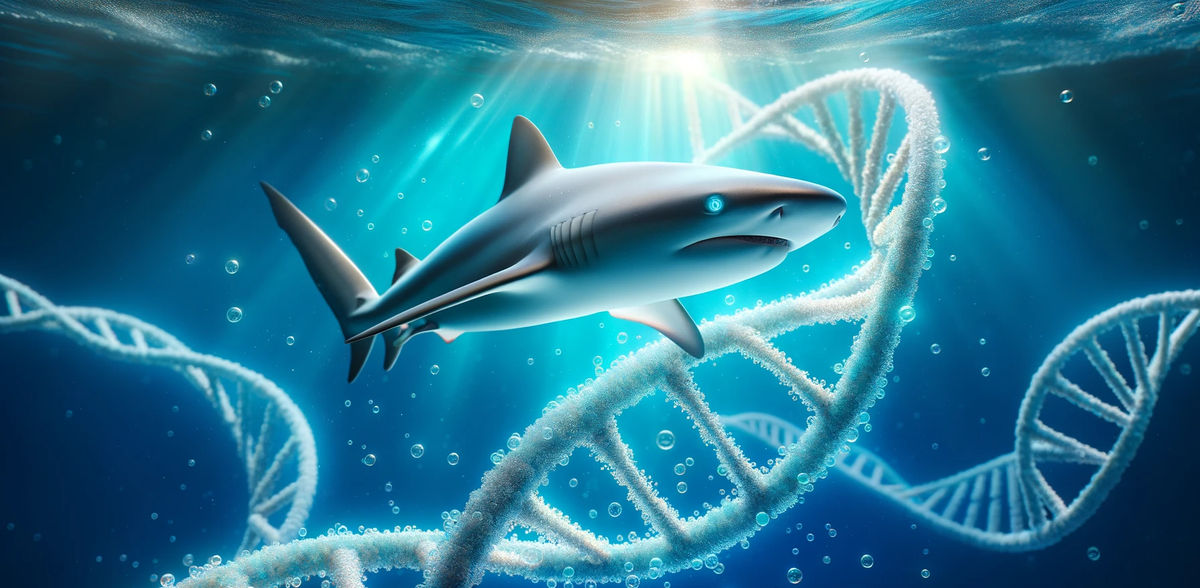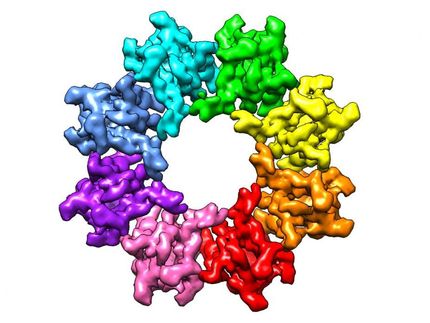Genomic Stability: A Double-Edged Sword for Sharks
Sharks have long been said to have an exceptionally low cancer rate
Sharks have existed for millions of years, rarely develop cancer, and react sensitively to ecological changes. An international study led by Würzburg scientists shows that one explanation lies in the fish's genes.

The adult pair of epaulette sharks from the study.
Frank J. Tulenko, Monash University
Sharks have been populating the oceans for about 400 to 500 million years. While our planet and many of its inhabitants have undergone massive changes several times during this period, this basal group of vertebrates has remained somewhat constant. Their body shape and biology has hardly changed since then.
An international research team from Germany, Australia, Sweden, and the USA has now discovered the reason for this. They found that sharks have the lowest mutation rate between generations ever recorded in vertebrates.
The study was led and coordinated by the research group of Senior Professor Manfred Schartl at the Department of Developmental Biochemistry of the Julius-Maximilians-Universität Würzburg (JMU).
It has now been published in the journal Nature Communications.
Studies on Epaulette Sharks
For the study, epaulette sharks were caught off the northeast coast of Australia and a breeding station was subsequently set up at the Australian Regenerative Medicine Institute (ARMI) at Monash University. This made it possible for the first time to genetically assess the mutation rate within a shark family tree.
First, the research team was able to create a high-quality reference genome and sequence the entire genomes of the parents and then the nine offspring to discover new mutations occurring in the progeny.
The result: with an estimated mutation rate of 7×10-10 per base pair per generation, they have the lowest mutation rate yet recorded in vertebrates. It is ten to twenty times lower than in mammals.
Low Mutation Rate as a Double-Edged Sword
Sharks have long been said to have an exceptionally low cancer rate. "The low mutation rate could play a decisive role in this," explains Manfred Schartl. What initially sounds like good news for the animals, however, also brings with it some problems.
Mutations are crucial because they increase genetic variability within populations, enabling adaptation to new conditions and evolutionary change. Because sharks evolve very slowly, they are at risk of being unable to withstand ecological stresses such as overfishing and habitat loss.
Particularly Worthy of Protection
Shark populations worldwide are experiencing sometimes dramatic declines. Of around 530 known shark species, several are already considered to be in acute danger of extinction. They are particularly threatened by changes in their habitat, for example due to ocean warming or bycatch in fisheries. However, sharks are also actively hunted, for example to produce anti-cancer supplements – without any scientific basis, of course.
Because sharks play a crucial role in many marine ecosystems, it is vital to support and intensify efforts to protect all shark species and preserve their genetic diversity.
Original publication
Ashley T. Sendell-Price, Frank J. Tulenko, Mats Pettersson, Du Kang, Margo Montandon, Sylke Winkler, Kathleen Kulb, Gavin P. Naylor, Adam Phillippy, Olivier Fedrigo, Jacquelyn Mountcastle, Jennifer R. Balacco, Amalia Dutra, Rebecca E. Dale, Bettina Haase, Erich D. Jarvis, Gene Myers, Shawn M. Burgess, Peter D. Currie, Leif Andersson, Manfred Schartl; "Low mutation rate in epaulette sharks is consistent with a slow rate of evolution in sharks"; Nature Communications, Volume 14, 2023-10-19

























































